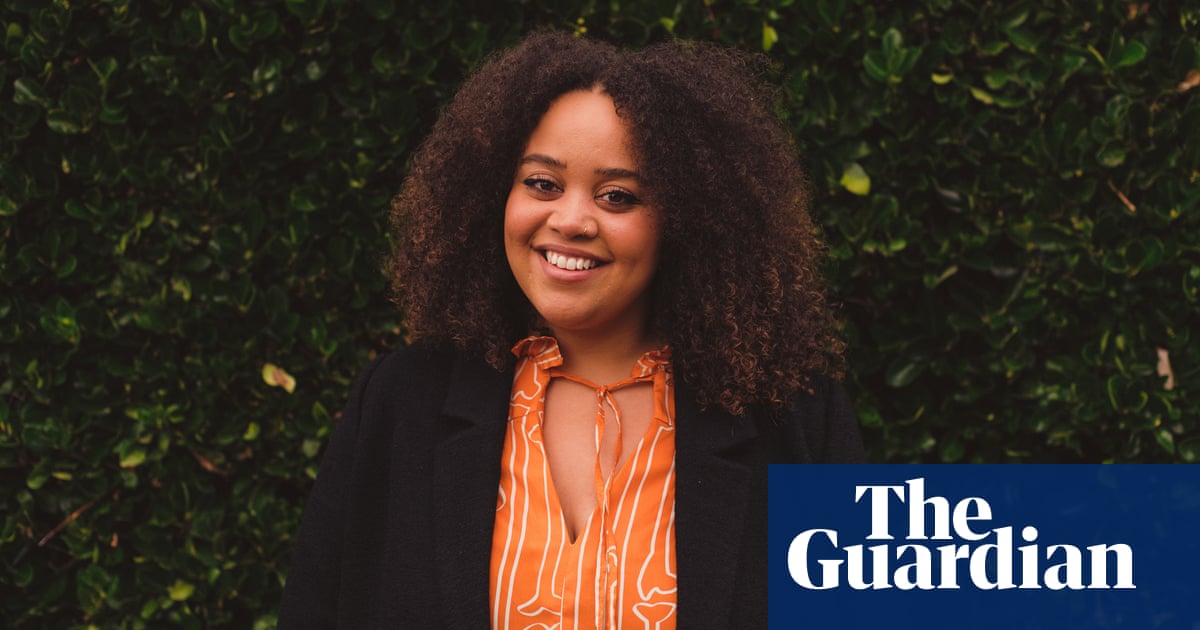New year’s resolutions: ‘I’m going to give away 10% of my income’ - 4 minutes read

Natalie Evans has given up her full-time job to go freelance. Photograph: Rebecca Douglas Consumer affairs New year’s resolutions: ‘I’m going to give away 10% of my income’ We talk to five people about their money aims for 2022, whether it is saving more or donating to charity
‘I’m hoping to support my activism through Patreon’
‘I’m going to give away 10% of my income’
Martin Hall, 25, has made a big commitment for 2022 – and beyond. The data engineer from Manchester has signed up to give away 10% of his income to charities for the rest of his working life. Hall has joined Giving What We Can, an organisation that encourages members to give 10% or more of their income to charities that have been found to have the most impact. It offers information to help members choose causes and organisations to donate to, and provides a list of charities it says are effective. A calculator on the site shows you how much impact your 10% donation could have. Everyone who has made the pledge – including Hall – is listed on the site, to encourage other people to add their name.
“It feels like the right thing to do. I am fairly comfortable and my needs are met, so 10% doesn’t make much difference – a nicer car or more takeaways doesn’t make much difference to me, whereas the money could have a huge impact on someone else’s life. I’ll stick to the pledge through continued belief in the value of what I’m doing, budgeting, and having a wider community around me that have taken the same pledge.”
‘I’m going to manage my finances better and scale back spending’
“I’m usually frantically saving for my tax bill at the end of the year,” says the owner of a PR agency. “I often find I’ve spent most of the tax bill rather than putting money aside throughout the year. I need to manage my finances a lot better, so at the start of 2022 I’m planning to pay myself a salary and then put the rest in savings accounts for the tax bill. I know I need to deposit money into different accounts as, at the moment, everything goes out of the current account.”
She adds: “I’ll be thinking about whether it’s really an essential purchase or not, and if not, won’t buy it. I spend quite a lot on platforms like Asos’s Premier Delivery, and Amazon Prime. I need to stop thinking I need six different things today. I’m going to cut back as much as I can. I’ll be looking at subscriptions and whether I need them. I don’t think I’ll stop using Amazon – I find it incredibly useful but what I have done is removed the app from my homepage.”
‘I’m looking to focus more on using cash’
“Although spending cash might be tough as more places are turning card-only, especially after the pandemic. I’m an academic and I deal with books but this is a social project I’d like to do. I know little in the way of finance but all I know is that it’s become clear that the global finance system is incapable of meeting the material needs of the majority and is instead committed to systemically transferring wealth upwards.”
He says he would also like to look into creating a local version of the Bristol pound, the city currency that is in the process of transforming into a new scheme called Bristol Pay. “That model has been interesting. I’ve already started putting feelers out about creating something similar in Plymouth,” he says. “I want to invest in communities, not extracting wealth and giving it to some unseen billionaire to build spaceships. I’d like to push for that kind of model in Cornwall and possibly Devon. I just think what is happening right now isn’t working – we need different ways of doing stuff and exchanging services. We need more community engagement.”
“This is optimistic to manageable as I am seriously curtailing my weekly expenses on food and travel,” he says. “I will be baking more, and all bills are included in my studio, so I know exactly how much my monthly spend will be. However, [any] lockdowns are going to mean that I rely more heavily on online teaching. I will still be required to complete teaching courses online, so that money is guaranteed, but it’s becoming increasingly difficult to find new teaching work, or even venues to perform live. I’ll be performing outside with rural sites for free, regardless of lockdowns, and hoping to get some donations from patrons.” Verran expects to pay off about £1,500 to £2,000 a month from his student loans.
Source: The Guardian
Powered by NewsAPI.org